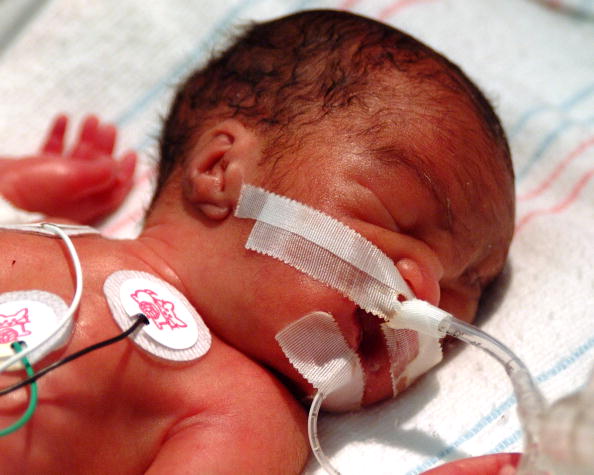Babies born prematurely need more sleep than anyone else often sleeping up to 90 of the day

Babies born prematurely need more sleep than anyone else, often sleeping up to 90% of the day.

Sleep is an essential part of our lives, and it becomes even more crucial during infancy. Babies spend a significant portion of their days sleeping, but did you know that premature babies need even more sleep than anyone else? In fact, they often sleep up to 90% of the day.
Premature babies, also known as preterm babies, are born before completing the full term of 37-40 weeks. These babies are born with underdeveloped organs and often require specialized care in the neonatal intensive care unit (NICU) to support their growth and development. Sleep plays a vital role in their overall well-being and helps them thrive during this critical period.
Sleep is essential for all babies as it contributes to their growth, brain development, and overall health. However, premature babies have unique needs, and sleep becomes even more crucial for their proper development. Premature babies spend most of their time sleeping because it helps them conserve energy and focus on growing and healing.
The sleeping patterns of premature babies differ from those of full-term babies. They tend to sleep longer and wake up less frequently during the day. As they grow, premature babies gradually increase their awake time, but they still need more sleep than term babies.
Research conducted by the Sleep Foundation suggests that premature babies may need up to 20 hours of sleep per day during the first few weeks of life. This excessive sleep requirement gradually decreases as they grow and develop. By the time they reach their expected due date, most premature babies have sleep patterns similar to those of full-term babies.
During their sleep, premature babies undergo essential physiological processes that aid their development. Sleep allows their bodies to restore and repair tissues, strengthen the immune system, and promote brain growth. It also helps in consolidating memories and learning, which are crucial for cognitive development.

It’s important to note that premature babies often have irregular sleep patterns, and their sleep-wake cycles may not align with a typical day-night schedule. This can be attributed to their immature circadian rhythms, which is the internal clock that regulates sleep-wake cycles. To promote healthy sleep habits, parents of premature babies are advised to establish a soothing bedtime routine and provide a sleep-friendly environment.
As premature babies grow and develop, their sleep needs gradually align with those of full-term babies. It’s crucial for parents to be patient and understanding during this period, as irregular sleep patterns are normal for premature babies. Creating a calm and comfortable sleep environment, maintaining a consistent routine, and following the advice of healthcare professionals can greatly support their sleep development.
In conclusion, babies born prematurely require more sleep than anyone else, often sleeping up to 90% of the day. Sleep plays a vital role in the growth and development of these babies, helping them heal, conserve energy, and promote brain development. While their sleep patterns may differ from those of full-term babies, establishing healthy sleep habits and providing a sleep-friendly environment can greatly support their overall well-being. So, let’s prioritize sleep and create the best possible environment for our premature babies to thrive.
Source: Sleep Foundation
Tags
Share
Related Posts
Quick Links
Legal Stuff

